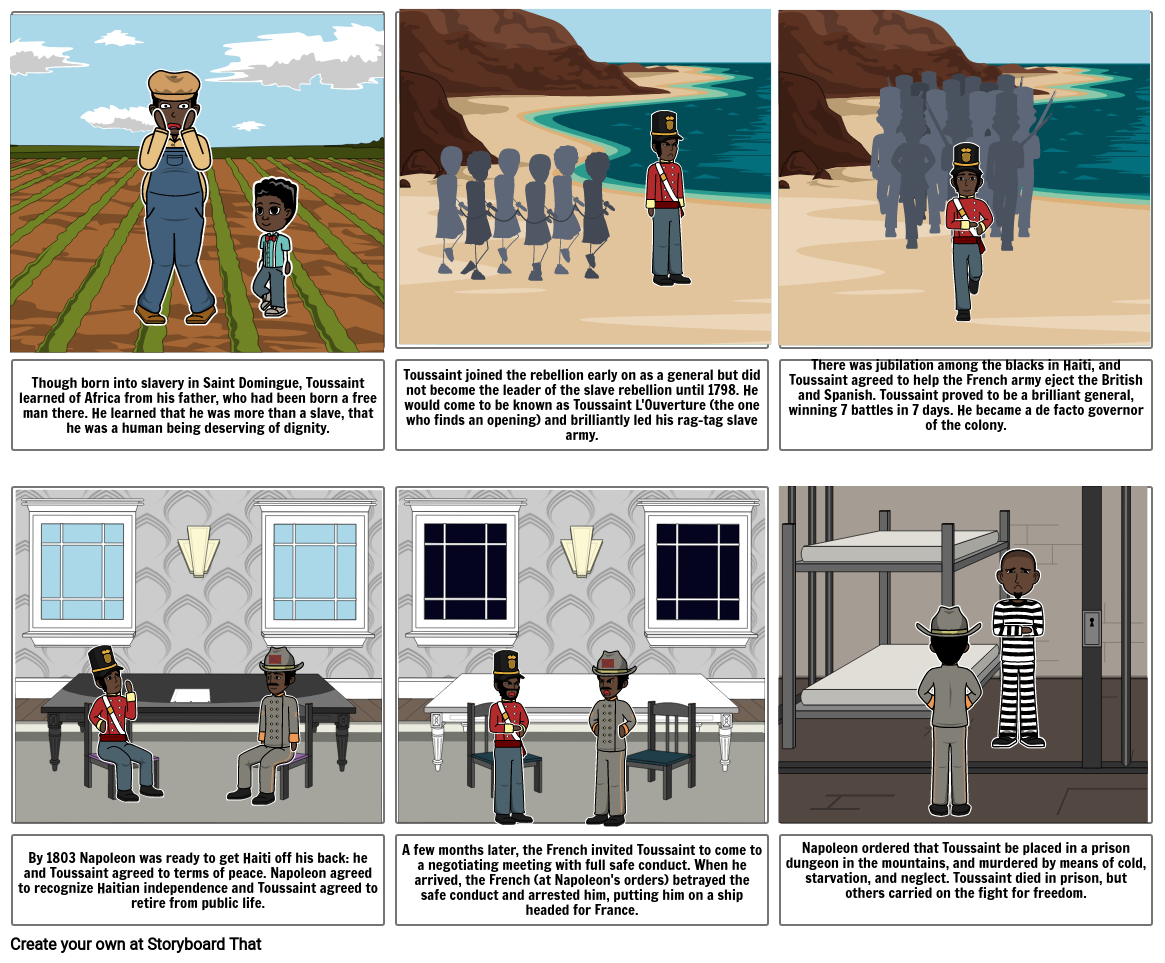Unknown Story

Storyboard Text
- Though born into slavery in Saint Domingue, Toussaint learned of Africa from his father, who had been born a free man there. He learned that he was more than a slave, that he was a human being deserving of dignity.
- Toussaint joined the rebellion early on as a general but did not become the leader of the slave rebellion until 1798. He would come to be known as Toussaint L'Ouverture (the one who finds an opening) and brilliantly led his rag-tag slave army.
- There was jubilation among the blacks in Haiti, and Toussaint agreed to help the French army eject the British and Spanish. Toussaint proved to be a brilliant general, winning 7 battles in 7 days. He became a de facto governor of the colony.
- By 1803 Napoleon was ready to get Haiti off his back: he and Toussaint agreed to terms of peace. Napoleon agreed to recognize Haitian independence and Toussaint agreed to retire from public life.
- A few months later, the French invited Toussaint to come to a negotiating meeting with full safe conduct. When he arrived, the French (at Napoleon's orders) betrayed the safe conduct and arrested him, putting him on a ship headed for France.
- Napoleon ordered that Toussaint be placed in a prison dungeon in the mountains, and murdered by means of cold, starvation, and neglect. Toussaint died in prison, but others carried on the fight for freedom.
Over 30 Million Storyboards Created

